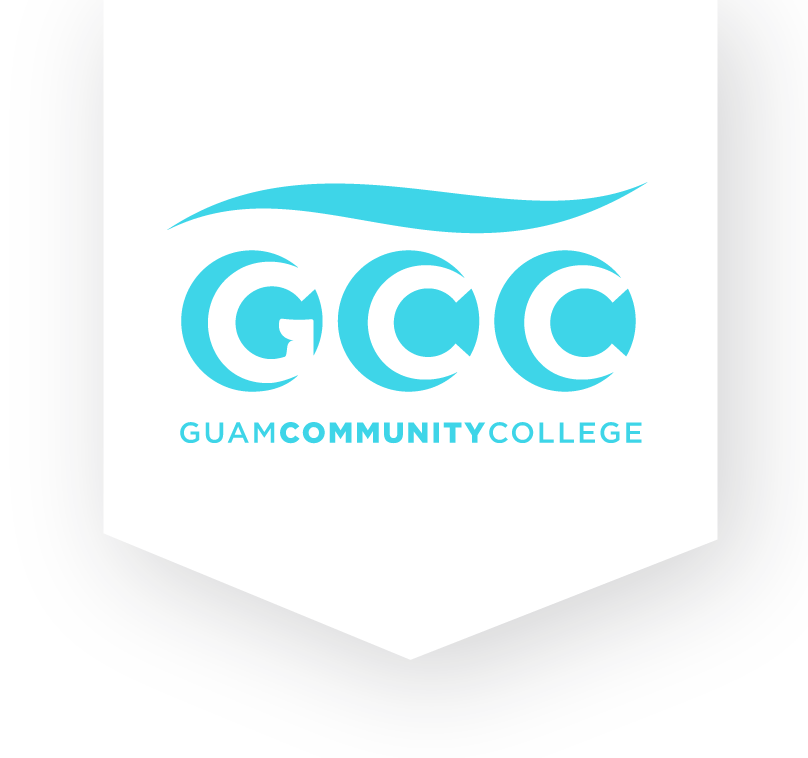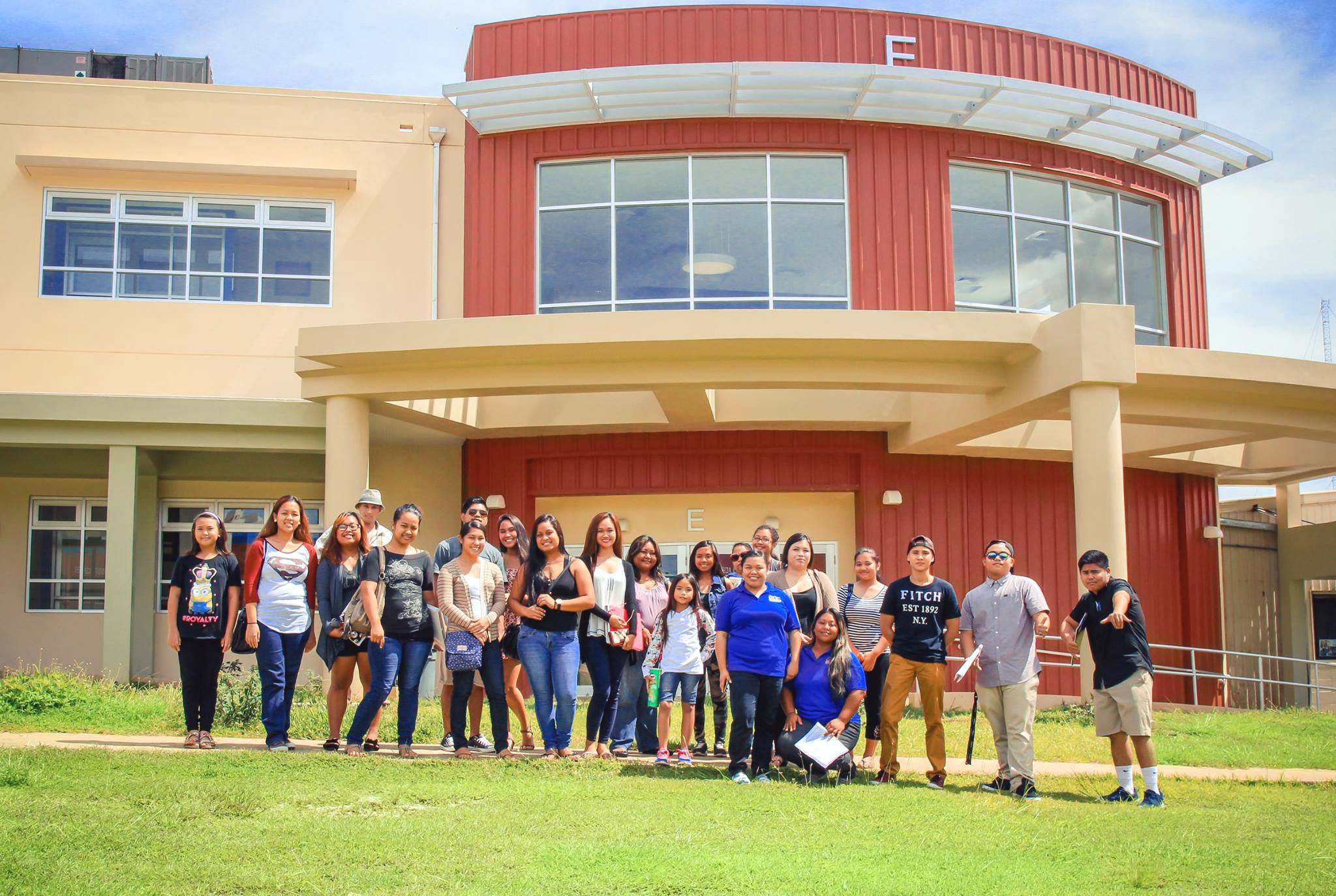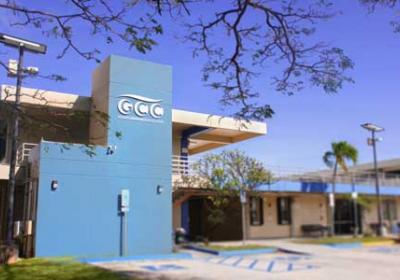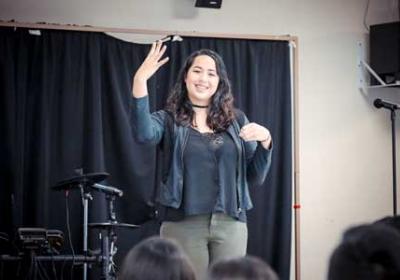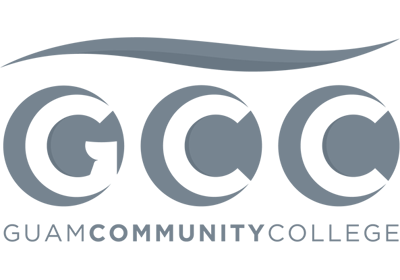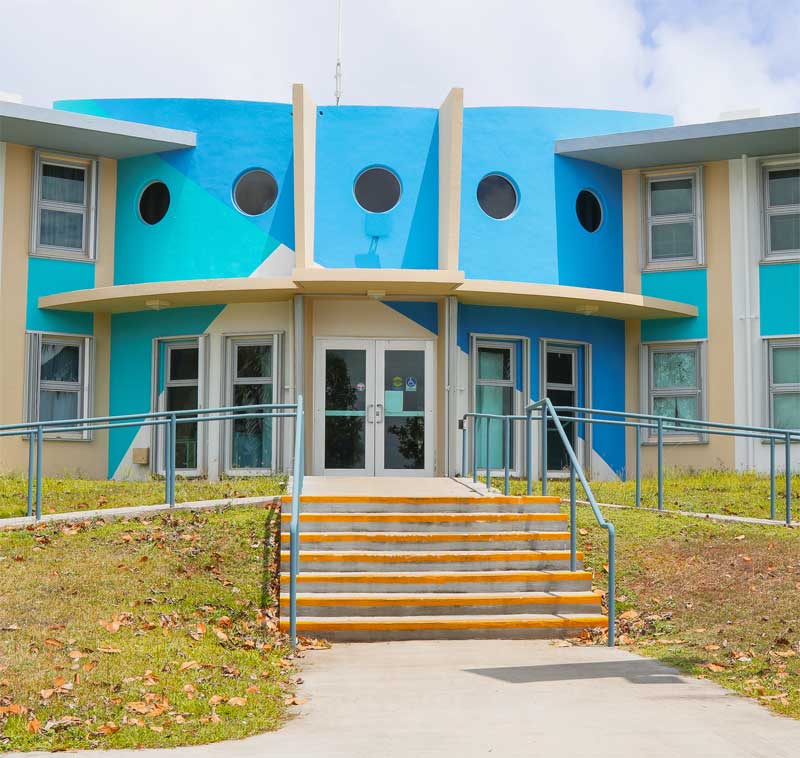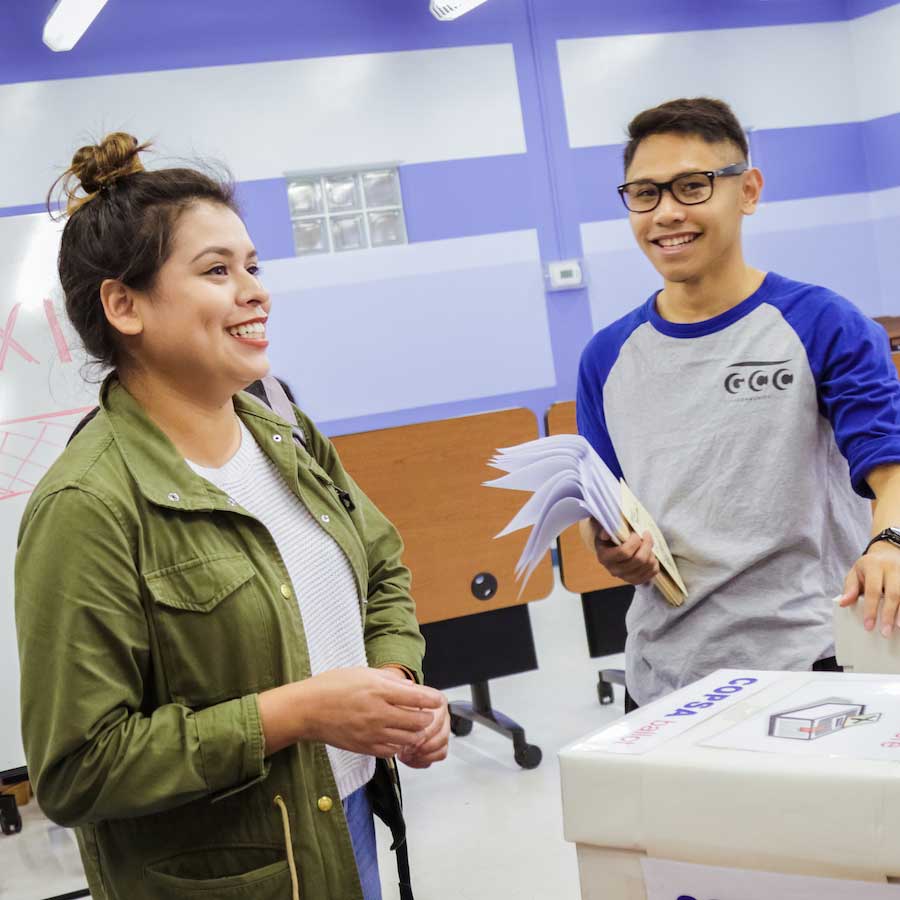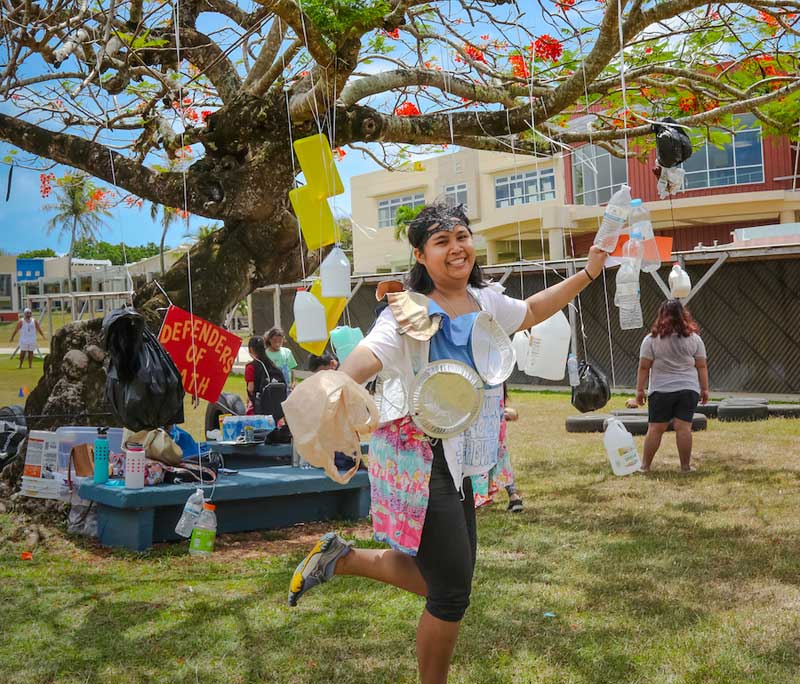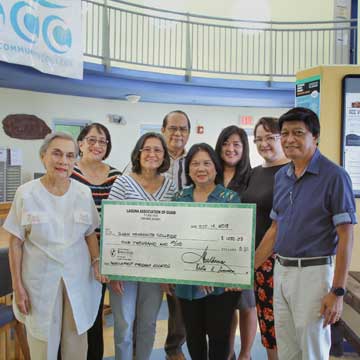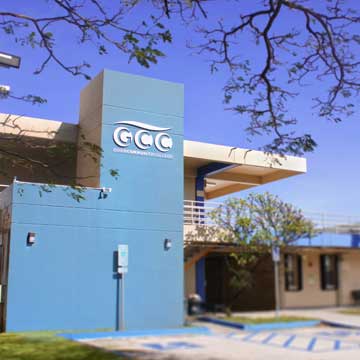Associate of Science in Early Childhood Education
- You are on...
Main Page for Early Childhood A.S.
Associate of Science in Early Childhood Education
Total Credit Hours: 60-61
Early childhood pertains to children age eight and below. Early childhood educators work in Head Start programs, childcare centers, family home care programs, elementary schools, social services programs, and health care services. These professionals plan and implement appropriate experiences for young children in areas such as language, health, movement, creativity, cognitive, self-concept and social behavior. They also supervise children’s activities, care for their needs, keep records of their progress, and confer with parents and other professionals.
The Associate of Science in Early Childhood Education is closely aligned with national standards and meets the education requirements for Basic Educator Preschool Certification from the Guam Commission for Educator Certification. The National Association for the Education of Young Children encourages a minimal educational level of an associate degree in early childhood education for early childhood program teachers. A grade of “C” or higher must be achieved for the Program’s “Major” courses.
| General Education Requirements | ||
| Course | Course Name | Credits |
| English (Choose 1) | ||
| EN110A | Freshman Composition with Instructional Lab | 4 |
| EN110 | Freshman Composition | 3 |
| Course | Course Name | Credits |
| Mathematics (Choose 1) | ||
| MA110A | Finite Mathematics | 3 |
| MA115 | Fundamentals of College Algebra | 3 |
| MA161A | College Algebra & Trigonometry I | 3 |
| Literacy for Life (Choose 1) | ||
| CO110 | Critical Thinking for Civic Engagement | 3 |
| CS151 | Windows Applications | 3 |
| CS152 | Macintosh Applications | 3 |
| Social & Behavioral Sciences Requirement | 3 | |
| Humanities & Fine Arts Requirement | 3-4 | |
| SI___ | Natural & Physical Sciences Requirement | 4 |
| Major Requirements | ||
| Course | Course Name | Credits |
| CD110 OR ED150 |
Introduction to Early Childhood OR Introduction to Teaching |
3 |
| CD221 OR ED220 |
Child Growth & Development OR Human Growth & Development |
3 |
| CD140 | Nutrition and Physical Health | 3 |
| CD180 | Language Arts Development in Early Childhood | 3 |
| CD240 | Cognitive & Creative Development in Early Childhood | 3 |
| CD260 | Social & Emotional Development | 3 |
| ED231 | Introduction to Exceptionalities | 3 |
| ED265 | Culture and Education in Guam | 3 |
| CD292 | Early Childhood Education Practicum OR | 3 |
| CD293 | Early Childhood CDA Practicum | 12 |
| List of Elective Courses (or provide category, optional include total: (5-14) **Important Note: Students who choose CD293 need (5) elective credits; students who choose CD292 need (14) elective credits. |
||
| Course | Course Name | Credits |
| ASL100 | American Sign Language I | 4 |
| ASL110 | American Sign Language II | 4 |
| ASL120 | American Sign Language III | 4 |
| ASL130 | American Sign Language IV | 4 |
| CD285 | Childcare Management | 3 |
| CH110 | CHamoru I | 4 |
| CH111 | CHamoru II | 4 |
| CH200 | Immersion Methods for CHamoru Language Teaching | 3 |
| CH220 | CHamoru Composition | 3 |
| ED150 | Introduction to Teaching | 3 |
| ED180A | Educational Methods I | 3 |
| ED220 | Human Growth & Development | 3 |
| ED292 | Education Practicum | 3 |
| CTE299A | PRAXIS I Review Part A | 2 |
| CTE299B | PRAXIS I Review Part B | 1 |
| HL135 | Heartsaver First Aid CPR | 1 |
| PROGRAM TOTAL | 60-61 | |
2024-2025 College Catalog
Recognizing the necessity for students to succeed in the complex and rapidly changing workplace, Guam Community College offers a general education curriculum that introduces students to major areas of knowledge and methods of inquiry. All degree programs require an interdisciplinary general education component that promotes the development of intellectual skills that enable students to become effective learners and informed citizens. Critical thinking, the use of language and computation, appropriate social skills, global awareness and respect for diverse opinions are among the learning outcomes provided in the general education requirements of each program.
Guam Community College believes that general education provides the academic foundation necessary for students to achieve their life goals. General education is intended to offer students a breadth of quality student learning experiences, encourage their respect for cultural heritage, promote their ethical and responsible social behavior and facilitate their life-long learning.
The General Education program strives to foster student learning and skill development in civic engagement, critical thinking, understanding of the relationship between the individual and society, information literacy, oral communication, quantitative reasoning, and written communication.
Guam Community College believes that high quality general education opportunities for all citizens are necessary for democratic principles and practices to exist and for a sound economy to flourish. The College continually scrutinizes the general education curriculum in order to assure that all degrees and certificates granted by the College support this vision of general education and that it serves as a means to inspire hope, opportunity and responsibility in all its constituencies.
Requirements for General Education follow the options described below. Students declared prior to fall 2010 will follow the requirements indicated in the applicable catalog in which they first declared their major program at the College.
Notes on General Education requirements
Students are advised to check the requirements for their specific programs before taking General Education courses.
Courses chosen to meet the general education requirements may not be used to meet the Major Requirements of a student’s specific degree program.
The list contains courses with pre-requisites, so students should make their choices carefully and thoughtfully. Students may consult a counselor or an academic advisor for guidance in choosing any of the course options listed.
IMPORTANT NOTE: Some programs require different levels of coursework to meet General Education requirements, please review the individual programs for more information.
| GENERAL EDUCATION | ||
| Scope 1: Skills for and Application of Lifelong Learning | ||
| Freshman Composition (Choose one course from the following to meet the required 3-4 credits) | ||
| Course # | Course Name | Credits |
| EN 110 | Freshman Composition | 3 |
| EN110A | Freshman Composition with Instructional Lab | 4 |
| EN 111 | Writing for Research | 3 |
| Mathematics (Choose one course from the following to meet the required 3-4 credits)* | ||
| Course # | Course Name | Credits |
| MA 110A | Finite Mathematics | 3 |
| MA 115 | Fundamentals of College Algebra | 3 |
| MA 161A | College Algebra & Trigonometry I | 3 |
| *Any college level math will be considered for the completion of this category | ||
| Literacy for Life Skills (Choose one course from the following to meet the required 3 credits) | ||
| Course # | Course Name | Credits |
| CO 110 | Critical Thinking for Civic Engagement | 3 |
| CS 151 | Windows Applications | |
| CS 152 | Macintosh Applications | |
| Scope 2: Broad Comprehension of the Development of Knowledge, Practice and Interpretation | ||
| Humanities & Fine Arts (Choose one course from the following to meet the required 3-4 credits)* | ||
| Course # | Course Name | Credits |
| ASL 100 | American Sign Language I | 4 |
| CH 110 | Chamorro I | 4 |
| ED 265 | Culture & Education in Guam | 3 |
| CO 125 | Introduction to Human Communication and Speech | 3 |
| EN 210 | Introduction to Literature | 3 |
| HI 121 | World Civilization (Pre-historic Time to 1500) | 3 |
| HI 122 | World Civilization (1500 to Present Time) | 3 |
| HI 176 | Guam History | 3 |
| HM 110 | Introduction to Community Services | 3 |
| HM 201 | Social Welfare & Development: Global Challenges | 3 |
| HU 120 | Pacific Cultures | 3 |
| HU 220 | Guam Cultures & Legends | 3 |
| JA 110 | Japanese I | 4 |
| KE 110 | Korean I | 4 |
| PI 101 | Introduction to Philosophy | 3 |
| TH 101 | Introduction to the Theater | 3 |
| VC 101 | Introduction to Visual Communications | 3 |
| *Any foreign language, humanities, or fine arts course will be considered for the completion of this category | ||
| Natural & Physical Sciences (Choose one course and the corresponding lab from the following to meet the required 4 credits)** | ||
| Course # | Course Name | Credits |
| SI 101/101L | Introduction to Chemistry (3) & Introduction to Chemistry Laboratory (1) | 4 |
| SI 103/103L | Introduction to Marine Biology (3) & Introduction to Marine Biology Laboratory (1) | |
| SI 105/105L | Introduction to Physical Geology (3) & Introduction to Physical Geology Laboratory (1) | |
| SI 110/110L | Environmental Biology (3) & Environmental Biology Laboratory (1) | |
| SI 141 | Applied Physics I | |
| SI 150/150L | Introduction to Microbiology (3) & Introduction to Microbiology Laboratory (1) | |
| SI131/131L | Human Anatomy & Physiology I (3) & Human Anatomy & Physiology I Laboratory (1) | |
| SI132/132L | Human Anatomy & Physiology II (3) & Human Anatomy & Physiology II Laboratory (1) | |
| **The exception to this would be SI141 which does not include a laboratory requirement | ||
| Scope 3: Preparation for and Acceptance of Responsible Participation in Civil Society | ||
| Social & Behavioral Sciences (Choose one course from the following to meet the required 3 credits) | ||
| Course # | Course Name | Credits |
| EC 110 | Principles of Economics | 3 |
| PS140 | American Government | 3 |
| PY 100 | Personal Adjustment | 3 |
| PY 120 | General Psychology | 3 |
| PY 125 | Interpersonal Relations | 3 |
| SO 130 | Introduction to Sociology | 3 |
| CJ 100 | Introduction to Criminal Justice | 3 |
| WG 101 | Introduction to Women and Gender Studies | 3 |
| *Any social and behavioral science course will be considered for the completion of this category | ||
| Minimum General Education Requirements | 19 | |
2024-2025 College Catalog
| Year 1 | ||||||
| Semester 1 | Semester 2 | |||||
| Course | Course Name | Credits | Course | Course Name | Credits | |
| EN___ | English Requirement | 3-4 | CD110 OR ED150 |
Introduction to Early Childhood Education OR Introduction to Teaching |
3 | |
| MA110A OR MA115 |
Finite Mathematics OR Fundamentals of College Algebra |
3 | CD221 OR ED220 |
Child Growth & Development OR Human Growth & Development |
3 | |
| Humanities or Fine Arts | 3-4 | CD140 | Nutrition and Physical Health | 3 | ||
| Elective | 3-4 | Social/Behavioral Science | 3 | |||
| Total | 12-14 | Total | 12 | |||
| Year 2 | ||||||
| Semester 3 | Semester 4 | |||||
| Course | Course Name | Credits | Course | Course Name | Credits | |
| CD240 | Cognitive & Creative Development in Early Childhood |
3 | ED265 | Culture and Education in Guam | 3 | |
| CD180 |
Language Arts Development in Early Childhood |
3 | ED231 | Introduction to Exceptionalities | 3 | |
| SI___ | Natural & Physical Sciences Requirement | 4 | CD260 |
Social & Emotional Development | 3 | |
| Elective | 3-4 | Elective (Only for students who are taking CD292) |
3-4 | |||
| Literacy for Life Skills | 3 | Elective (Only for students who are taking CD292) |
3-4 | |||
| Total | 16-17 | Total | 15-17 | |||
| Semester 5 | ||||||
| CD292 OR CD293 |
Practicum OR CDA Practicum | 3 OR 12 | ||||
| Elective (Only for students who are taking CD292) |
3 | |||||
| 6-12 | ||||||
| Program Total | 60-61 | |||||
2024-2025 College Catalog
- Model appropriate practices for children, professionalism, and demonstrate ethical conduct based on guidelines from the National Association for the Education of Young Children (NAEYC).
- Implement various developmentally and age-appropriate teaching, assessment and guidance strategies needed to work with young children from birth to age eight.
- Reflect on practices, pedagogy and resources used in early childhood settings that serve children age’s birth through age eight years.
